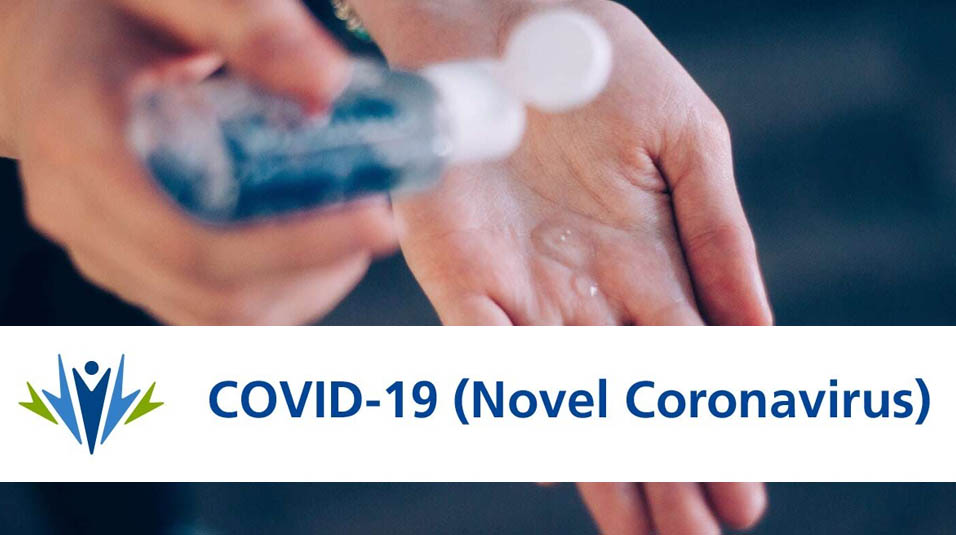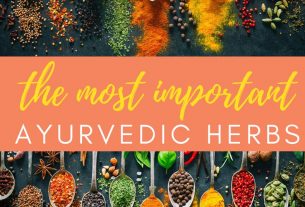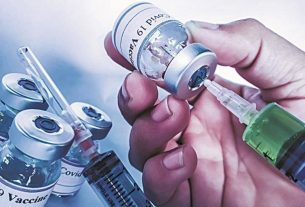It’s been more than a month since the deadly Coronavirus has been creating a menace. The current outbreak of this Novel Coronavirus has dramatically interfered with the lives of millions of people worldwide. Worldwide, Coronavirus has infected over 5 lac people and taken more than 22,000 lives. The panic has spread in India as well with 724 cases reported to date. While there are a total number of 38 cases in the state so far.
Till now we have been watching the stories on the news about how the Government was handling the epidemic. Many people responded to this news with “it could never hit us and will only happen to others,” response and were ignorant about this. The novel-coronavirus is causing havoc. Now when the situation has reached its peak, and when the entire country has been brought under lockdown, It’s the time to act responsibly and not to take it lightly. People need to be fully aware to take precautionary measures and to prevent themselves from getting the virus.
In this article, you will find everything you need to know about COVID-19, right from its symptoms to how it gets transmitted, and what are some strict do’s and don’ts for prevention.
WHAT IS CORONAVIRUS?
Coronavirus disease (COVID-19) is an infectious disease caused by a newly discovered coronavirus first reported in the city of Wuhan in Hubei province, China on 31 December 2019.
HOW DOES COVID-19 GET TRANSMITTED?
It doesn’t spread by air. It is spreading mainly from person-to-person through respiratory droplets. Coming in contact with droplets of saliva through coughing or discharge through sneezing of an infected person. These droplets transmit in the mouths or noses of nearby people (people within about 6 feet) and possibly be inhaled into their lungs, infecting them.
It also spreads from contact with contaminated surfaces or objects. There are possibilities that a person can get infected by touching a surface or object that has the virus on it and then touching their own face, mouth, nose, or eyes.
SIGNS AND SYMPTOMS
COVID–19 may present with mild, moderate, or severe illness; the latter include severe pneumonia, Acute respiratory distress syndrome(ARDS), sepsis and septic shock.
Persons with uncomplicated upper respiratory tract viral infection may have non-specific symptoms such as fever, cough, sore throat, nasal congestion, malaise, headache. The elderly and persons with decreased immunity may not have any signs of dehydration, sepsis or shortness of breath. The symptoms may evolve in the following manner-
1st week: Fever, cough, vomiting, nausea, diarrhea
2nd Week: Deterioration – Difficulty and shortness of breath, Chest tightness
WHO ARE AT RISK OF GETTING EXPOSED TO IT
Elderly, Children, Health care personnel are more prone to getting an infection. The severity of the disease increases with underlying medical problems like hypertension, Diabetes, Asthma, Immunocompromised conditions, Kidney disease. Those who are undertaking chemotherapy are likely to get exposed. Any person who has undertaken international travel in the last 14 days is also at risk. They should stay in the home quarantine for 14 days.
WHEN TO GET TESTED FOR COVID-19
- Any person if they become symptomatic (fever, cough, difficulty in breathing) should be tested with a healthcare professional.
- Family members who live in the same household with a confirmed case should be tested once between day 5 and day 14 of coming in his/her contact.
- Healthcare workers who examined a confirmed case.
CLEAR YOUR MYTHS ABOUT COVID-19
- Cold weather can kill new coronavirus or other diseases. – False
- It can be transmitted by mosquitoes/mites/houseflies – False
- UV lamps are effective in the sterilization of hand and clotings- False
- Chlorine or alcohol spray over the human body is effective. – False, it can be harmful to the body.
- Pneumococcal vaccine and Haemophilus influenza type B (Hib) vaccine are useful in COVID19 – False
- Garlic does not provide any protection against the new coronavirus.
DO’S AND DON’TS TO FOLLOW
- Maintain hygiene: Wash your hand frequently for at least 20 seconds with soap or a 70% alcohol-based sanitizer. Follow the standard 7 steps of hand hygiene, Scrub between the fingers and around the nails thoroughly. If hands are dirty or oily, do not use alcohol-based hand sanitizer and prefer washing hands with soap and water.
- Stay at home: You may not know who is infected or when you will get exposed to the deadly virus. It is strictly essential to stay at home and keep a safe (at least 3 feet) distance with every person, especially from sick people and those who have flu, cold, cough or respiratory problems. Avoid mass gatherings.
- Cover your mouth and nose: Keep your mouth and nose covered with masks. Make sure your mask is fitted properly over your nose, mouth, and chin and there are no gaps. Change your mask after every six hours or when they become wet. Do not use the same mask repeatedly as it increases the risk of getting an infection. While in use, avoid touching the mask, and do not touch the potentially contaminated outer surface of the mask.
- Use medical mask: It is recommended to use a medical mask if you are sick or infected; while visiting a healthcare center; when in contact with an ill person or if you are a family of suspect/confirmed cases undergoing home care. N95 and surgical masks are recommended. Do not use the handkerchief or tissue paper as a mask as they are ineffective against this virus.
- Discard the used mask: Used masks should be first disinfected then disposed of either by burning or deep burial. They can be disinfected by using ordinary bleach solution (5%) or sodium hypochlorite solution (1%). Dispose of them into closed bins after disinfecting them. Also, wash your hands after disposing of them
- Follow a healthy routine: Do things that increase your immune power. Drinking warm water and avoiding eating cold things will be helpful. Also, avoid smoking and other activities that weaken the lungs.
- Seek medical care: If you feel any of its symptoms, have early medical care from the healthcare professions even in cases of normal or mild symptoms. Don’t take medicines on your own or without any prescription. Antibiotics won’t help in COVID-19 infection. Only the medicines prescribed by a healthcare professional should be preferred.
- Don’t touch your face: Avoid touching your face before washing your hands properly as the virus enters our body through the nose and mouth. Every time you touch any place or thing (especially in public places) there is a risk it may be infected and your hands can get infected.
- Don’t travel when you are sick: Make sure you are healthy before traveling. Refrain yourself from attending mass gatherings or going to public places, buses, and sharing taxis if you have a fever, coughing, sneezing
Instructions for home quarantined cases and their family members
- People with a travel history to a country or area from where COVID-19, A person living in the same household as a COVID-19 case even not having any symptoms of cough, fever, difficulty in breathing, should quarantine themselves at home and must take above precautions and avoid contact with any person including family members for 14 days from the date of arrival.
- In case the person being quarantined becomes symptomatic, all the people in contact with them should be home quarantined (for 14 days) till the report of such a case turns out negative after lab testing.
- Only an assigned family member should be allowed to take care of the infected person. No other person should be allowed to visit them. The person needs to be restricted to a specific room in their home to keep others safe. Avoid movement within the house, stay away from elderly people, pregnant women, children, and persons with co-morbidities within the household.
- Avoid direct contact with their dirty linen with your skin. Use disposable gloves for the cleaning or handling dirty linen. Also, avoid shaking the dirty linen. Wash your hands after removing the gloves.
- The home quarantined person should stay in a room receiving natural air. It would be safe if the room has an attached/separate toilet. If another family member needs to stay in the same room, it’s advisable to maintain a distance of at least 1 meter between the two.
IMPORTANT
Any person with sickness or a travel history to a country or area from where COVID-19 has been reported, must inform the nearest Government Hospital or call a toll-free helpline number 104/108 or State control room 01412225624 District control rooms so that necessary measures if required may be initiated.
The administration has set up Coronavirus helpline numbers. For any queries or support related to COVID19, people from Rajasthan can reach out to the numbers provided below:
Central Helpline Number:
Toll-free: 1075 and +91-11-23978046
Rajasthan Helpline Number: 0141-2225624
Helpline Email ID :
[email protected] OR [email protected]
These are the medical institutions in Rajasthan facilitating the coronavirus lab test.
- Sawai Man Singh Hospital, Jaipur
- S.N. Medical College, Jodhpur
- Jhalawar Medical College, Jhalawar, Rajasthan
- SP Medical College, Bikaner, Rajasthan
- R.N.T. Medical College, Udaipur
- Govt. Medical College, Kota.
As always, prevention is better than cure. Do follow the above precautions to keep yourself safe and protect you and your close ones from the coronavirus infection. Remember, this won’t stop unless we adjust to the situation and act responsibly. Please stay at home to be safe and help stop spreading it!
At this time, there is no cure or specific vaccine for COVID-19. However, research is under process evaluating potential treatments. Moreover, self preventive care and Improving immunity is the best way to protect from viruses. Living in fear of the Coronavirus will not work and will only put you in stress lowering your immunity strength. Regular exercise and reducing stress is the key to keep yourself immune and safe from becoming sick.
Apart from COVID 19, when it comes to keeping your mind and body healthy, turning towards Ayurveda is the best one can do. Jaipur Ayurveda Hospital has highly effective remedies that help to maintain a healthy body, mind, and spirit.



